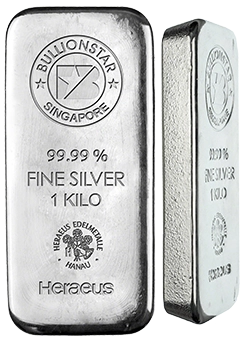Interview With Willem Middelkoop About The Big Reset
The very reason I became interested in gold after the financial crisis in 2008 was because of Dutch gold guru, author, journalist, entrepreneur, and fund manager Willem Middelkoop. When I started reading his books I was immediately obsessed with economics and the gold market – along with thousands of others across the world. Who would have thought that I would become a precious metals analyst a few years later?
It was an honor to have contributed to Willem’s latest book The Big Reset with translations from Chinese policy makers that stimulate their citizenry to accumulate physical gold and my initial research into the Shanghai Gold Exchange that revealed Chinese gold demand was approximately twice a large as what was previously thought in the English-speaking world.
When The Big Reset was first released in January 2014 I’ve conducted an interview with its author about the inevitable reset of the international monetary system (the interview was published in two parts on this blog – one, two). Since then a lot has happened in the global realm of economics and at the same time The Big Reset became an international best seller. As we speak The Big Reset has been translated in Dutch, German and Chinese and is expected to appear in Portuguese, Arabic, Polish and Vietnamese.
To keep up with the most recent developments Willem has added 70 pages in the revised edition of The Big Reset. For me a reason to have another chat with him about what he saw has happened in the past two years:
The Big Reset
J: Is it a coincidence that after the financial crisis more tensions between the West and East emerged and is there a financial war played by the US?
WM: Economic warfare aims to capture or otherwise control the supply of critical economic resources or destroying a country’s currency. The US understands better than anybody else that a country can sometimes be hurt more by doing this than by bombing its infrastructure. A recent example of financial economic warfare was the sudden crash of the price of oil and value of the ruble soon after the annexation of the Crimea by Russia, in the second part of 2014. In less than six months the price of oil halved. This large drop could not be explained by fundamentals like supply and demand. Some market commentators said it reminded them of the Cold War era when the US and the former USSR competed not only in a military way, but also tried ‘to play the economy’. Because the USSR was increasingly more dependent on food imports, especially grain, the export of oil had to bring in enough dollars. The US decided to use its influence on Saudi Arabia (OPEC) and persuaded them to expand the supply of oil, making the oil price plunge in the 1980s. It would soon prove to be a fatal attack for Russia and the Soviet Union collapsed in 1991. The fact that Saudi Arabia in 2014 again increased its oil production fuelled rumours of a new economic war against Russia. The collapse of the oil price led to collapse of the Russian ruble. The Russian Sberbank, confirmed that it had come under a financial economic attack in December 2014. Herman Gref, CEO of Sberbank, disclosed a foreign-based attempt to provoke a bank run during the December ruble crisis. In an interview he said that about $6 billion had been withdrawn from the Sberbank in a single day after a massive information attack, with people receiving text messages saying Sberbank was facing problems paying out deposits. Thousands of SMS-messages were sent, including a large number of mailings done from foreign websites.
J: What more do you see around the world in terms of financial warfare?
WM: In May 2015, the US had a number of high-ranking FIFA officials arrested in Switzerland in connection to a bribery case. Most observers did not understand that the US action was designed to pressure FIFA, ‘urging it to consider removing Russia as host of the 2018 FIFA World Cup because of its role in the Ukraine crisis and occupation of Crimea.’ China and Russia were also shocked to learn how the SWIFT international payment system was used as a means to attack Russia. In 2014, the United Kingdom pressed the EU to block Russia from the SWIFT network as a sanction for the Russian aggression in Ukraine. China responded quickly and launched its own alternative, the China International Payment System (CIPS). In addition, by 2012 SWIFT disconnected all Iranian banks from its international network. Alastair Crooke, a former MI6 official is one of the few individuals who has been very open about the purpose of this kind of financial and economic warfare.
J: Is this all meant to defend the US dollar hegemony?
WM: In a book, ‘Treasury’s War,’ the tool of exclusion from the dollar-denominated global financial system is described as a ‘neutron bomb.’ When a country must be isolated, a ‘scarlet letter’ is issued by the US Treasury that asserts that such-and-such bank is somehow suspected of being linked to a terrorist movement – or of being involved in money laundering. The author of ‘Treasury’s War’ Juan Zarate, chief architect of modern financial warfare and a former senior Treasury and White House official, writes this scarlet letter constitutes a more potent bomb than any military weapon. With Ukraine we have a substantial, geostrategic conflict taking place, being part of a geo-financial war between the US and Russia.
J: What’s China’s roll in this?
WM: It has brought about a close alliance between Russia and China. China understands that Russia constitutes the first domino; if Russia is to fall, China will be next. These two states are together moving to create a parallel financial system, disentangled from the Western financial system. That’s why both are accumulating so much physical gold. It includes replicating SWIFT and creating entities such as the Asian Infrastructure Investment Bank. One of the principal tools in the hands of Washington to control the global system was always the International Monetary Fund (IMF). Nations have to go to the IMF to ask for financial help, when in difficulties, but recently it was China – and not the IMF – which bailed out Venezuela, Argentina and Russia as their currencies crashed. China became concerned when the ruble crashed late 2014, and intervened to halt a run on the currency. The IMF and the World Bank are no longer at the center of the global financial order.
J: Why is this dollar hegemony so important for the US?
WM: ‘Great nations have great currencies and great currencies can give countries great power so they can even grow into empires’, political scientist Jonathan Kirshner once said. In order to maintain its monetary hegemony, the United States must weaken any potential competitors who will possibly challenge the US monetary hegemony. Wars in the Middle East are fought to strengthen the dollar’s position and fight regimes that have been supporting Russia. General Wesley Clark, the Supreme Allied Commander of NATO during the 1999 War on Yugoslavia, confirmed in an interview that the US had decided to work toward regime changes in seven countries, in order to secure US interest in the region before any new world power might arise.
J: Through the dollar the US has unlimited powers?
WM: Any country, like the US, that issues the dominant world reserve currency has almost limitless power to finance other countries. It gives the monetary hegemony ‘exorbitant privilege,’ as the French remarked in the 1960s. Because it can print the world currency the US can buy anything it wishes without having to worry about its liabilities. While the Soviet Union collapsed because they had to import food with hard-earned dollars from their oil exports, in the 70s and 80s, the US could start the Korean War and the Vietnam War with freshly printed greenbacks. By ‘obliging’ foreign central banks to keep their monetary reserves in Treasury bonds, the US in fact forced them to finance US military spending abroad, as Michael Hudson explains in his book ‘Super Imperialism’. In this new form of imperialism, the US is able to rule not through its position as world creditor, but as world debtor. America’s weakness as a debtor country has indeed become the foundation of the world’s monetary and financial system. A Chinese market commentator once remarked: ‘World trade is now a game in which the US produces dollars and the rest of the world produces things that dollars can buy … a dollar hegemony that forces the world to export not only goods but also dollar earnings from trade to the US … Everyone accepts dollars because dollars can buy oil.’ Only when dollar-holding nations decide to buy natural resources instead of US treasuries, is the dollar’s reserve currency status in danger. This is exactly the exit strategy China and Russia seems to be playing right now. In recent years, the Russians have sold most of their dollar holdings, while they tripled their gold position. The Chinese have stopped buying extra US Treasuries since 2010 while they have imported and invested in huge amounts of gold. These developments signal the first stages of the US dollar’s decay.
Popular Blog Posts by Koos Jansen
 China’s Secret Gold Supplier is Singapore
China’s Secret Gold Supplier is Singapore
 Audits of U.S. Monetary Gold Severely Lack Credibility
Audits of U.S. Monetary Gold Severely Lack Credibility
 China Gold Import Jan-Sep 797t. Who’s Supplying?
China Gold Import Jan-Sep 797t. Who’s Supplying?
 The Gold-Backed-Oil-Yuan Futures Contract Myth
The Gold-Backed-Oil-Yuan Futures Contract Myth
 Estimated Chinese Gold Reserves Surpass 20,000t
Estimated Chinese Gold Reserves Surpass 20,000t
 Did the Dutch Central Bank Lie About Its Gold Bar List?
Did the Dutch Central Bank Lie About Its Gold Bar List?
 PBOC Gold Purchases: Separating Facts from Speculation
PBOC Gold Purchases: Separating Facts from Speculation
 U.S. Mint Releases New Fort Knox Audit Documentation
U.S. Mint Releases New Fort Knox Audit Documentation
 China Net Imported 1,300t of Gold in 2016
China Net Imported 1,300t of Gold in 2016
 Why SGE Withdrawals Equal Chinese Gold Demand and Why Not
Why SGE Withdrawals Equal Chinese Gold Demand and Why Not






 Koos Jansen
Koos Jansen











